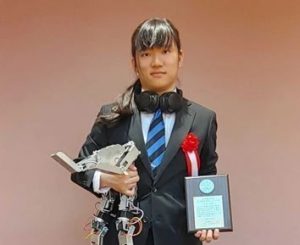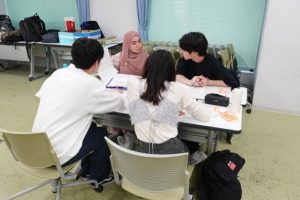As part of the ToTAL course “Fundamental Group Work for Leadership”, Philosophical Dialogue: p4c was held on July 4, 2025.
| Facilitator | Prof. Mitsuyo Toyota (Community Design, Sado Center for Island-based Coexistence, Niigata University) |
| Date and Time | Friday, July 4, 2025, 17:30–20:00 |
| Venue | Room S6-309A, 3rd Floor, South Building 6, Ookayama Campus |
[Learning through Dialogue: Thinking]
Activity 1: Icebreaker with Yarn
The session began with a warm-up activity where we used a ball of yarn for introductions. Sitting in a circle, we passed the yarn around while introducing ourselves with two themes:
Round 1: Major, least favorite food
Round 2: What we expect from this workshop
As the yarn moved from one person to another, it gradually formed a “community ball” in the center of the circle, visually showing how we were all connected. This gentle and creative activity helped everyone relax and created a warm, welcoming atmosphere.
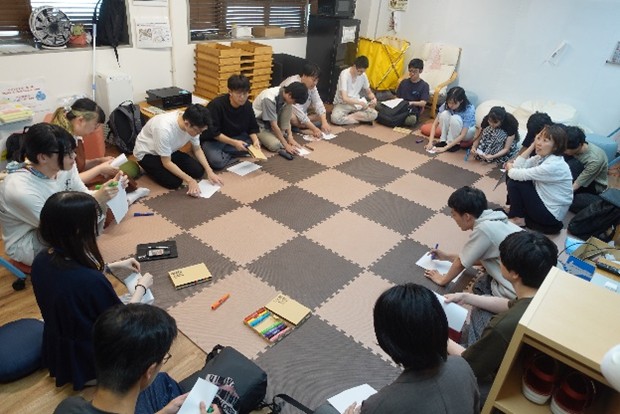
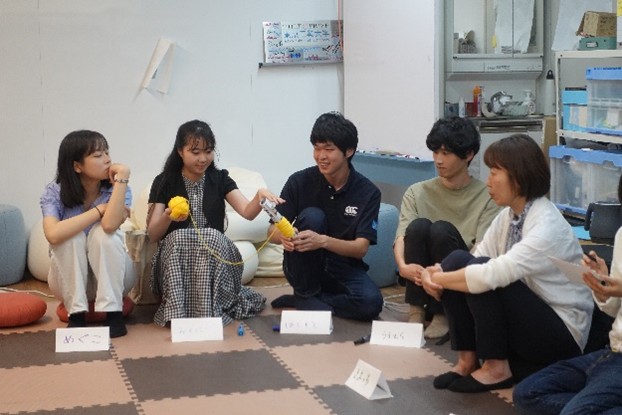
Activity 2: Introduction to p4c and Dialogue Rules
The facilitator introduced the concept of p4c (Philosophy for Children), a method originally developed for young students to grow their thinking and reasoning skills through dialogue. In this workshop, we experienced how the same method can also be meaningful for adults.
Some key principles we learned were:
・The next speaker is chosen by the previous speaker
・There are no “correct” answers
・Every opinion has value
・Safety and respect in the space are essential
Unlike traditional classroom discussions, where the order of speakers is oftern determined by “turn-taking” or “evaluation”, in this workshop, we followed a different style: “those who wanted to speak raised their hands, and the person who had just spoken chose the next speaker,” and “every comment was received with respect.”
Activity 3: Generating Questions and Practicing Dialogue
Next, we explored three broad themes (Diversity, Technology, Humanity).
By vote, we selected “Humanity” as our central theme. Each participant came up with a question related to this theme, and shared. Eventually, we chose this question for the group discussion: “What is the most important thing in life?”
We then spent about 60 minutes in a free, open-ended dialogue using the p4c method. Rather than trying to find a final answer, we explored different viewpoints, reflected on what others said, and sometimes even shifted our own ideas during the conversation.
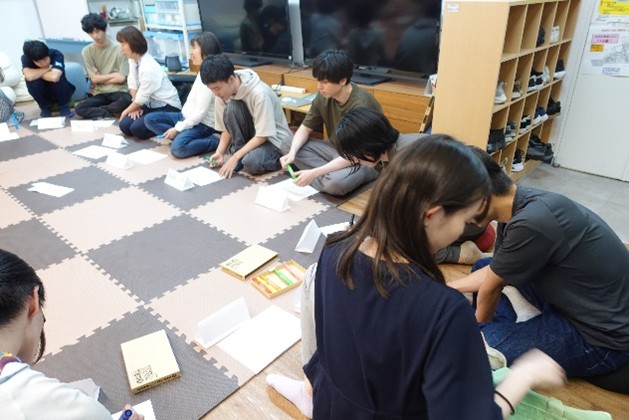
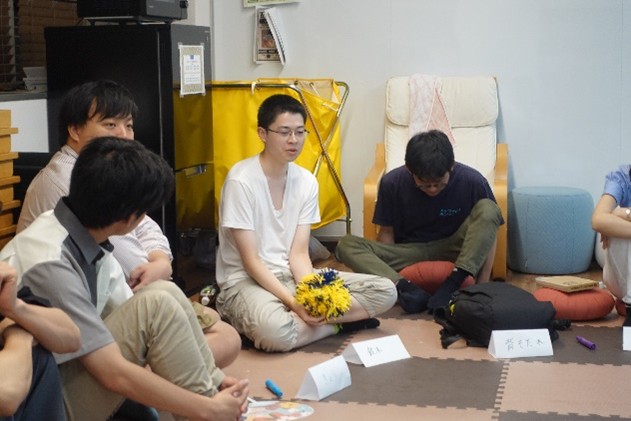
Activity 4: Reflection and Sharing
After the dialogue, we reflected on what we had experienced. The facilitator helped us recognize how this type of dialogue is different from debates or discussions:
・The goal is not to win or persuade
・We build ideas together rather than fight over them
・We respond to others’ voices thoughtfully
・Our words become part of the shared space
At the end, everyone shared:
・Their thoughts about the dialogue
・Any questions they had
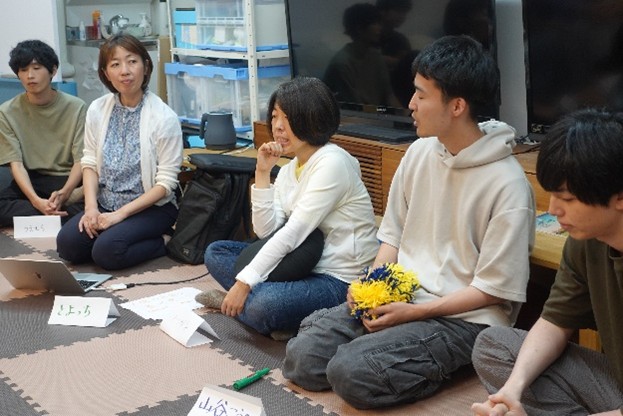
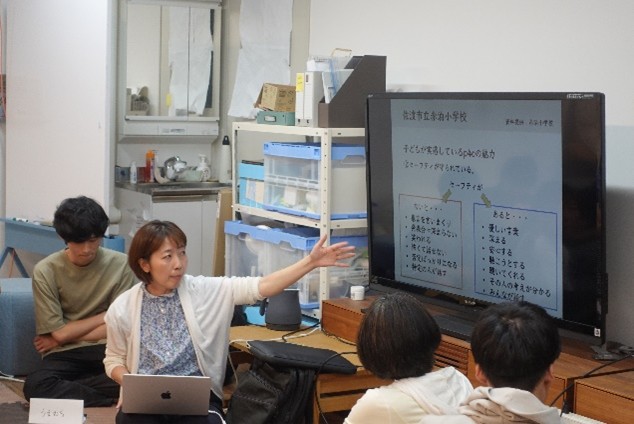
Reflections
This workshop gave me a rare and valuable opportunity to practice thinking without crafting an answer. Using the p4c method, we focused on exploring questions instead of solving them. The format encouraged us to take time, respect different viewpoints, and truly listen to others. I realized that the act of continuing to question—rather than reaching a final answer—can lead to deeper insight. In today’s fast-paced world, where efficiency and results are often prioritized, it was refreshing and meaningful to simply stay with the question. I believe this mindset will help me in both my academic research and daily communication.
Additional Note
I participated as both an observer and a participant. I was impressed by how seriously everyone engaged with the chosen question. If you are someone who:
・Wants to take time to think deeply
・Feels nervous about speaking in discussions
・Is curious about new ways of thinking
・Wants to create safe, thoughtful spaces for dialogue
I highly recommend this workshop. It offers a kind of learning experience that is very different from usual classes. Even beginners can feel welcome and grow through the session.
Written by:
Yuta Murao, D1, School of Life Science and Technology, ToTAL 6th Cohort

